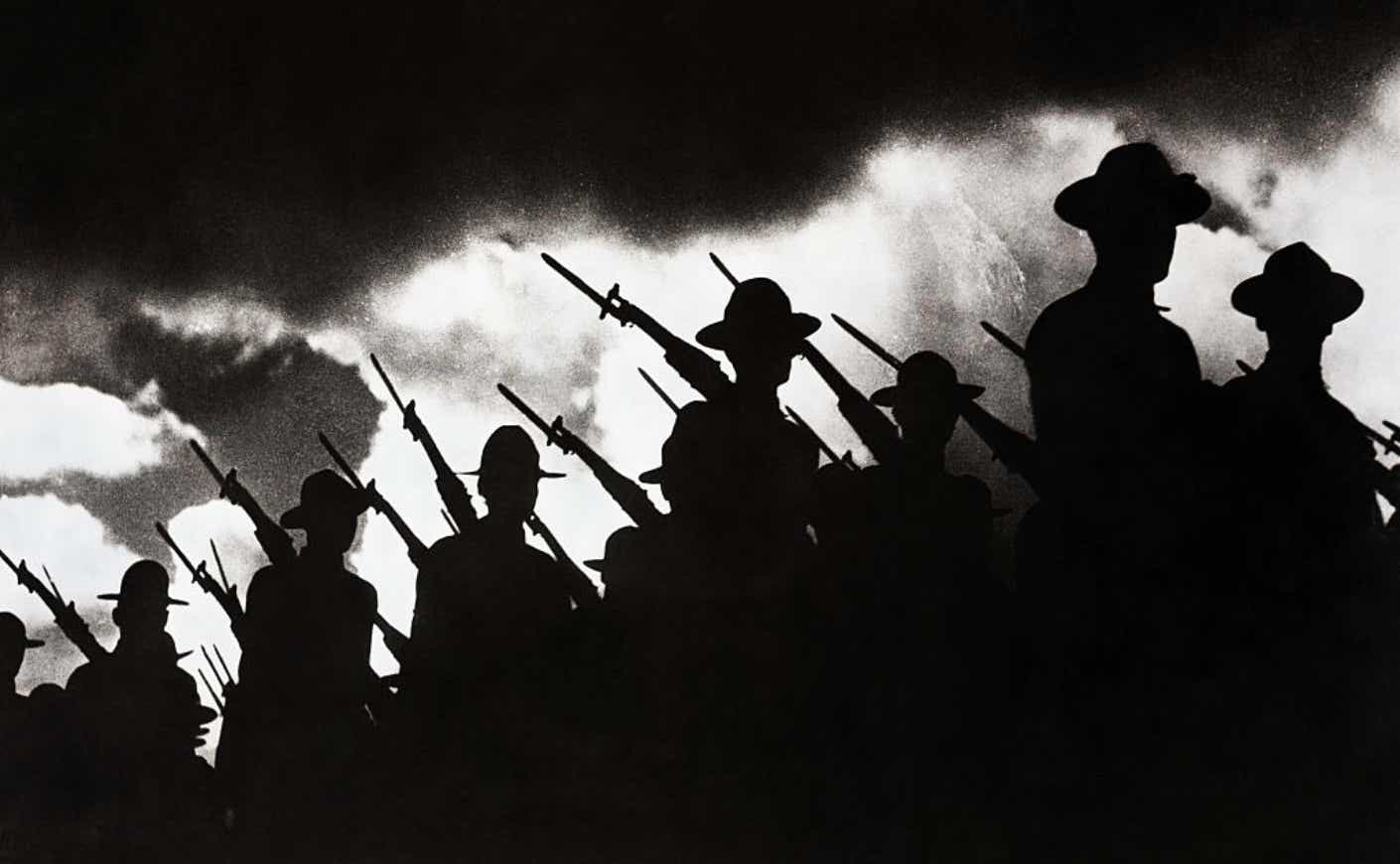World War I doesn’t get nearly the same amount of attention as its bloody successor, in our culture or even on the big screen. Often referred to as “the Forgotten War,” it has largely fallen out of public consciousness for many.
That’s probably at least partly because the war happened more than 100 years ago and there aren’t any veterans left. (The last surviving WWI soldier, Frank Buckles, died in 2011.) But historian and writer John Monsky is hoping to change that with his multimedia concert event, November 1918: The Great War and The Great Gatsby, which explores the massive and catastrophic historical event in tandem with the beloved novel, in a production at New York’s Carnegie Hall.
Why did Monsky choose to weave the two together? “People have a cultural frame of reference for World War II, whether it's through movies like Schindler's List or Saving Private Ryan, but World War I is much harder,” he says. “I knew the minute I was gonna try to tackle World War I, I needed a leg in. Like many of us, I read The Great Gatsby in high school and I thought it might work.”
This isn’t Monsky’s first experience with a project of this scope: For more than a decade, he’s been releasing installations of his American History Unbound series, each of which explores a fascinating period in our country’s development through music, photography, and other visuals. We wanted to know more about November 1918, so we asked Monsky for an inside look at the play, which debuts in NYC on Nov. 8, just three days before Veteran’s Day.
Katie Couric Media: Why did you opt to do November 1918 as a “multimedia event?”
John Monsky: Something happens that's pretty magical with a live orchestra and a live audience.
It’s also very exciting for me, because it took me about two years to write this and research everything. So when we finally put the orchestra on stage with photographs from the National Archives and the Broadway performers, even the meaning of what I originally wrote changed, because the emotion became much more powerful.
Ian Weinberger, who's currently the conductor of Hamilton, does the musical work, and we have other artists from New York City who contribute to different pieces of it. It has really been a collaboration — and that has been crucial.
There are a couple of notable Broadway performers in this production — how’d they get involved?
It started when I met, almost serendipitously, a couple of performers on Broadway who did productions of Flag Day, a musical show that I used to produce and host at my house that honored the holiday. Since then, it's been sort of a daisy chain of connectivity among really great performers. All have been really excited to perform at Carnegie Hall, no matter how big a name they are.
The fact that World War I didn't work out well is a reason people have shied away from it. But that’s a reason to lean into it.
Why did you decide to bring The Great Gatsby into the production?
Like many of us, I read The Great Gatsby in high school, and I thought recently that it might be a way "into" World War I. So I pulled the book out and reread it, 30 years later. It’s a great romance set during the 1920s, but I also realized that Fitzgerald never let go of World War I [as a theme] — in the first meeting of Gatsby and Nick, they talk about the fact that they're two World War I veterans, and they talk about the gray, wet villages in France. And that became the door into World War I.
Why do you think World War I remains “the Forgotten War?”
It’s somewhat of a failure of our own education, and that's sort of what I'm trying to do: to tell this American story in an accessible way with an orchestra, singers, and photographs. I want people to walk out wanting to know even more.
The fact that World War I didn't work out well is another reason I think people have shied away from it. But actually that’s a reason to lean into it, because we’ve learned a lot of lessons from it. The war also didn’t happen that long ago: A lot of families have come to me who still have their grandfather’s or great-grandfather's uniform from World War I.
You’ve done lots of these types of projects, as with the American History Unbound series. What’s a common thread that you’ve found through your research and storytelling?
One of the common threads is how people measure up to the challenges of humanity. Whether you're trying to put someone on the moon or save a life in the middle of a battlefield, it’s about the human challenge and trying to better the world. That's been a theme that's come out. But I'm also a historian, so the stories that I drive into aren’t always pretty. Sometimes we fail and sometimes we succeed, but I try to tell it like it happened.
This interview has been edited and condensed for length and clarity. Find more info, and tickets to November 1918, here.









